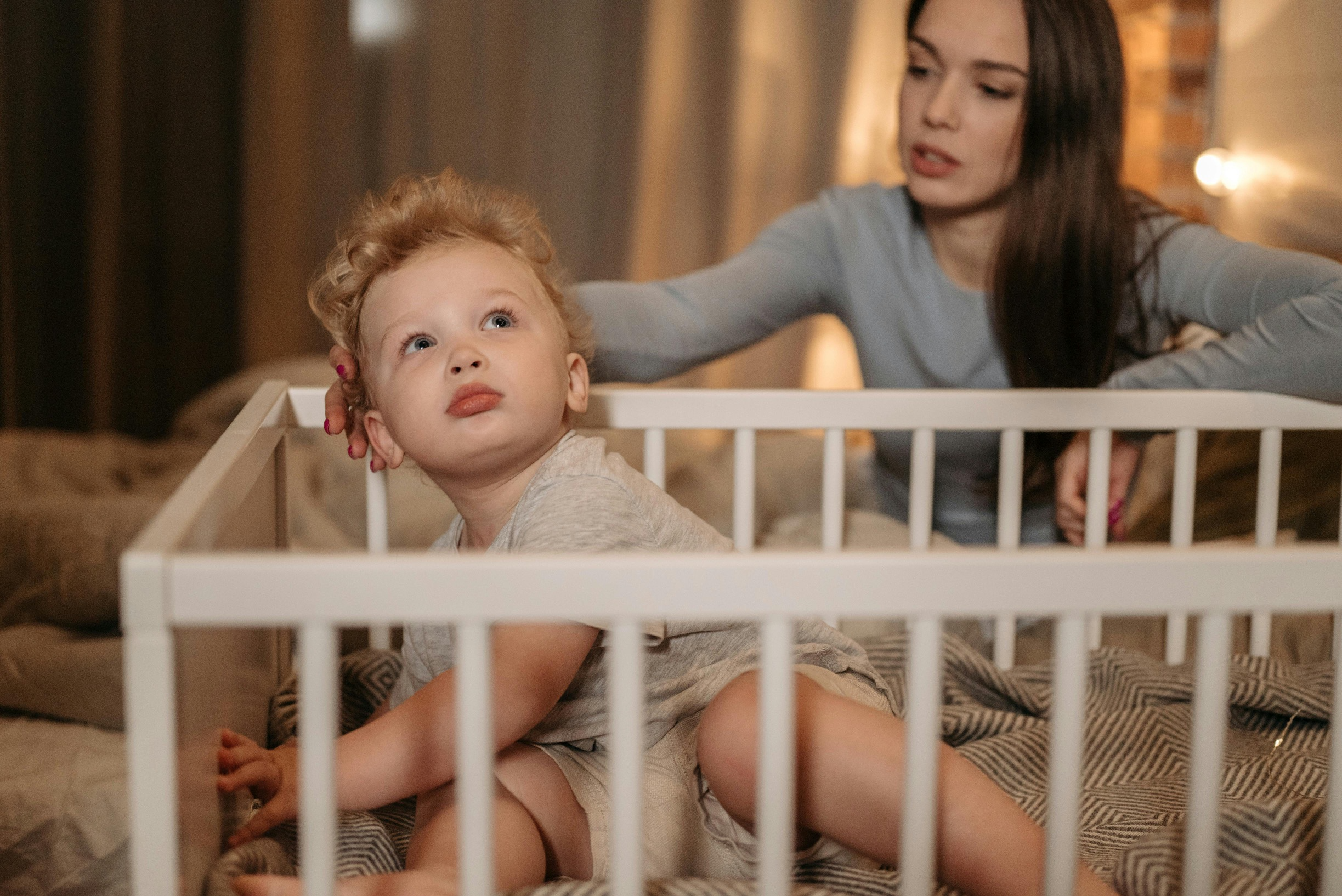Emotional distress (such as anxiety, stress, and depression) in parents (mothers in particular) is significantly associated with disrupted sleep in babies and toddlers.
There is no simple answer as to why. Unfortunately, there has not been a lot of research done into the underlying mechanisms. However, one possible explanation is that depressed or anxious mothers may interact with their child or children differently.
Maybe a parent, who normally responds to cries immediately, takes a little longer to attend to the problem when stress or anxieties are high. An inconsistent response will have an effect on the baby, how they learn to self-soothe and evidently, how they sleep.
Studies have shown that infants whose mothers had depression slept less, had a longer sleep latency period, and were more likely to wake up two or more times during the night
Ways to Reduce Stress and Create a Relaxed Environment for Your Baby
As parents, it can be difficult to create a relaxed environment for your baby. Stress and anxiety can quickly take over and make it hard to focus on the needs of your child.
Fortunately, there are some calming techniques that you can use to reduce stress and create a more relaxed atmosphere for your baby. These techniques include deep breathing, mindfulness meditation, yoga, aromatherapy, massage therapy, and more. By incorporating these relaxation methods into your daily sleep routine, you will be able to provide a calmer environment for both you and your baby.

Strategies to Create Healthy Habits Around Bedtime to Improve Restful Sleep
Creating healthy habits around bedtime can help improve the quality of your sleep. Here are a few things that you can try:
-
Establish a regular sleep schedule: Go to bed and wake up at the same time every day, even on weekends.
-
Create a bedtime routine: Develop a pre-sleep routine that helps signal to your body that it’s time to wind down. This can include activities like reading, meditating, or taking a warm bath.
-
Limit exposure to screens: The blue light emitted from electronic devices can interfere with the production of melatonin, a hormone that helps regulate sleep. Avoid screens for at least an hour before bedtime.
-
Make your sleep environment is comfortable: Keep your bedroom dark, quiet, and at a comfortable temperature. Use a comfortable mattress and pillows.
-
Avoid stimulating activities: Avoid activities that can be stimulating or stressful, such as working on a computer, watching TV or having difficult or stressed conversations before bed.
-
Avoid caffeine, nicotine, and alcohol: These substances can interfere with sleep, so avoid consuming them for at least a few hours before bedtime.
-
Get regular exercise: Regular physical activity can help improve sleep quality, but avoid vigorous exercise close to bedtime.
By implementing these strategies, you can create healthy habits around bedtime that will lead to more restful sleep. This, in turn, will help your baby sleep better too!
Taking care of yourself is essential in order to adequately take care of your little one.
If you, or your baby, are struggling with sleep, please know that you are not alone. You can talk to me about any struggles that you are facing on a completely free consultation call and if we feel like it’s a good fit, we can look to start working together.
Sweet Dreams,
Claudine x



